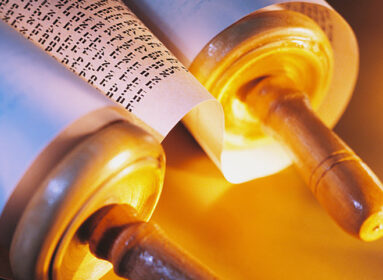
By Rabbi Tzvi Hersh Weinreb
Those who counsel families know that reconciling parents and children, husbands and wives, is a frustrating process and a rare achievement, especially after the misunderstandings have festered for years.
The great 18th century moralist, Rabbi Moshe Chaim Luzzato, contends that these difficulties are intrinsic to human nature. He writes:
“Hatred and revenge. These, the human heart, in its perversity, finds it hard to escape. A man is very sensitive to disgrace and suffers keenly when subjected to it. Revenge is sweeter to him than honey; he cannot rest until he has taken his revenge. If, therefore, he has the power to relinquish that to which his nature impels him; if he can forgive; if he will forbear hating anyone who provokes him to hatred; if he will neither exact vengeance when he has the opportunity to do so, nor bear a grudge against anyone; if he can forget and obliterate from his mind a wrong done to him as though it had never been committed; then he is, indeed, strong and mighty. So to act may be a small matter to angels, who have no evil traits, but not to ‘those that dwell in houses of clay, whose foundation is in the dust.” (Job 4:19) (Mesilat Yesharim [The Path of the Upright], Chapter 11).
And so, how do we explain the reconciliation between Joseph and his brothers?
Joseph’s brothers hated him because of what they perceived as his malicious arrogance. Yet, in last week’s Torah portion, we learned that they came to regret their actions and to feel guilty for what they did.
Joseph certainly had reason to hate his brothers. Yet, in this week’s parsha we learn of the forgiveness that Joseph demonstrated toward his brothers—a total triumph over hatred and revenge.
What inner strengths enabled Joseph and his brothers to attain this rare achievement? One was the brothers’ ability to accept responsibility for their actions. However, the underlying dynamics of Joseph’s ability to forgive were very different. He came to forgive his brothers because of two fundamental aspects of his personality: his emotional sensitivity and his religious ideology.
Joseph’s sensitivity becomes apparent in this and last week’s Torah portions. The most reliable indication of a person’s sensitivity is his ability to shed tears of emotion. Joseph demonstrates his capacity to weep no less than four times in the course of the biblical narrative:
Subsequent to his initial encounter with his brothers, we read that “he turned away from them and wept…” (Genesis 42:24); when he first sees his younger brother Benjamin, “he was overcome with feeling…He went into a room and wept there…” (ibid. 43:30); unable to contain himself after Judah’s confrontational address, “his sobs were so loud that…the news reached Pharaoh’s palace…” And finally, as we will read in next week’s Torah portion, this is Joseph’s response to his brothers’ plea for explicit forgiveness: “and Joseph was in tears as they spoke to him.” (ibid. 50:17).
In addition, there is another secret to Joseph’s noble treatment of his brothers. It relates to his philosophy. Like his father Jacobs, Joseph believed in a divine being who ultimately controls man’s circumstances and destiny. That belief allowed him to attribute even the most painful insults to God’s plan and not to blame the perpetrators of that insult. Thus was Joseph able to say, “So, it was not you who sent me here, but God…” (ibid. 45:8)
The power of genuine faith to instill the awareness that even hurtful circumstances are part of the divine plan is best described in this passage from the anonymous 13th century author of Sefer HaChinuch, in his comments on the commandment to desist from revenge:
“At the root of this commandment is the lesson that one must be aware and take to heart the fact that everything that happens in one’s life, whether it seems beneficial or harmful, comes about because of God’s intervention…Therefore, when a person is pained or hurt by another, he must know in his soul…that God has decreed this for him. He should not be prompted to take revenge against the perpetrator, who is only indirectly the cause of his pain or hurt. We learn this from King David who would not respond to the traitorous curses of his former ally, Shimi ben Gera.”
The author of Sefer HaChinuch sees King David as the exemplar of this profound religious faith. In these final Torah portions of the Book of Genesis, we learn that Joseph was King David’s mentor in regard to the capacity to rise above the misdeeds of others and to see them as but part of God’s design.
It is not easy for us to emulate Joseph and David, but we would be spared much interpersonal strife if we would at least strive to do so.







 Southern New England Jewish Ledger
Southern New England Jewish Ledger














